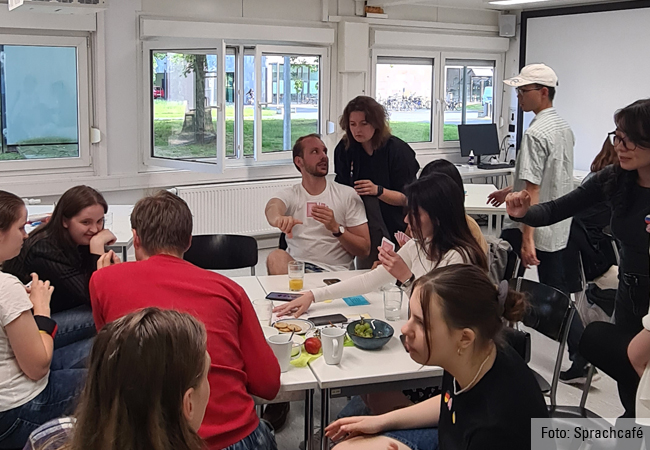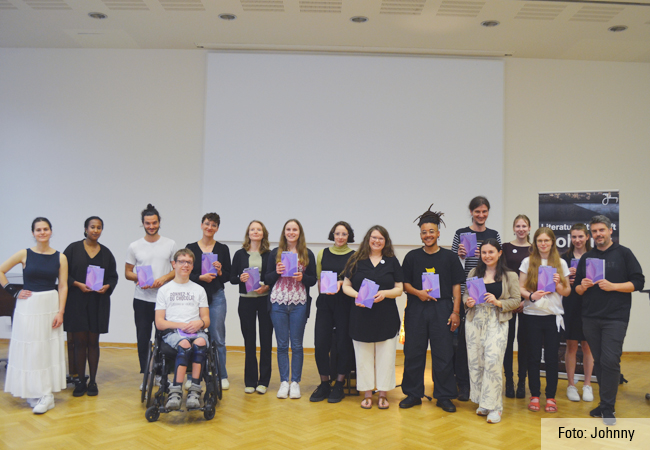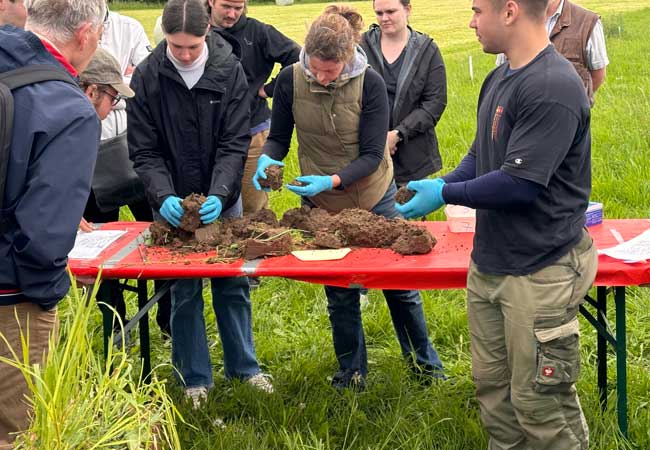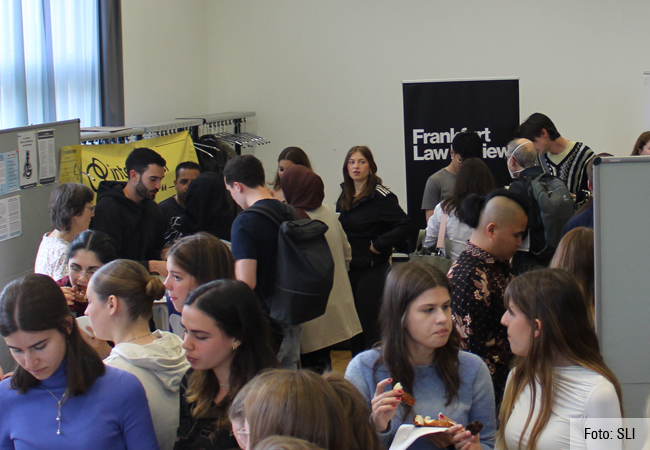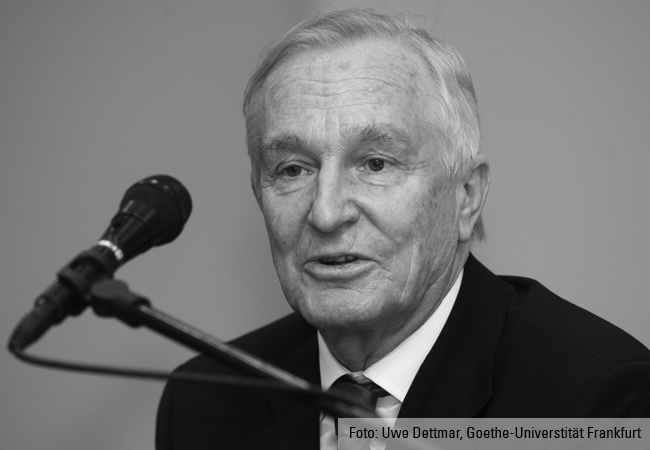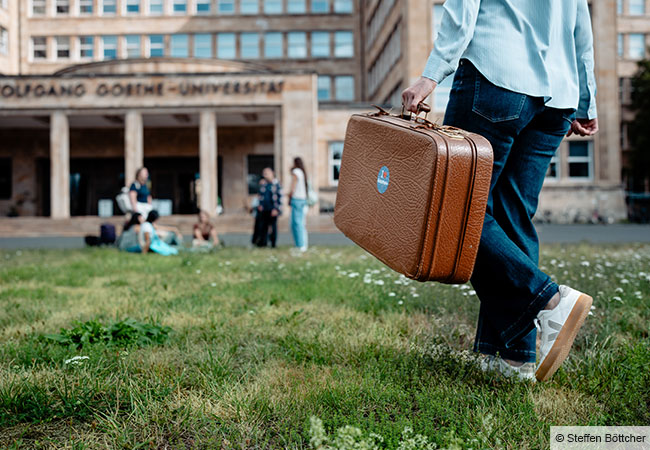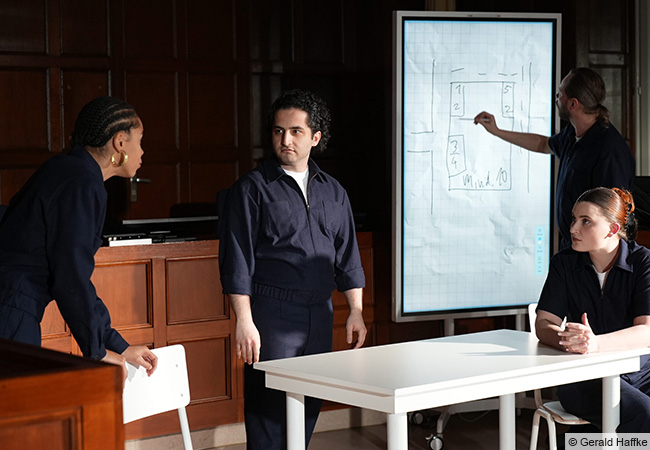Professor Laura Sagunski (physicist), Dr. Mariam Kamarauli (linguist) and Dr. Rupert Abele (biochemist and associate professor) have been awarded the coveted 1822 University Prize for Excellence in Teaching. This is already the 23rd time that Goethe University Frankfurt and the Frankfurter Sparkasse Foundation have honored lecturers who merit special recognition.
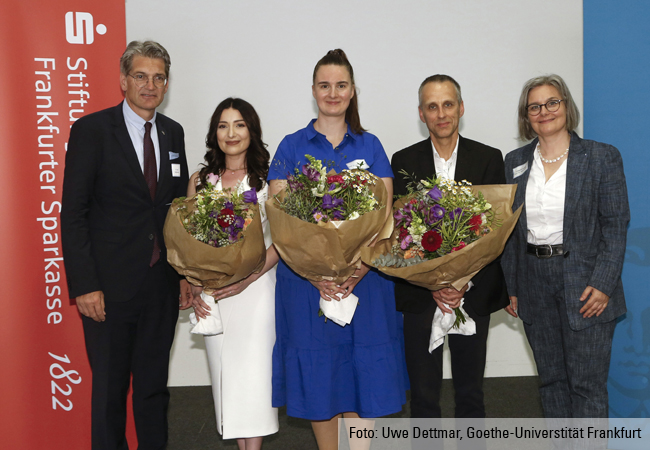
“Teaching is the centerpiece of our university,” said Professor Viera Pirker, Vice President Studies and Teaching at Goethe University Frankfurt, at the award of the 1822 University Prize for Excellence in Teaching on Westend Campus. Pirker referred to the recently adopted mission statement “Principles of Teaching and Studies at Goethe University Frankfurt”, which is consciously based on Alexander von Humboldt’s ideal of the unity of research and teaching in the sense of “education through science”. “We talk a lot about excellence. We need this excellence in everyday life at our university, too, in our teaching,” said Pirker, who only took up office of vice president a few weeks ago.
“Implementing ‘education for science’ as a basis for action requires teachers who are above all enthusiastic. Anyone who is passionate about their subject, about their topic, can also ignite this passion in others. This talent is what unites all our nominees, and I find that very pleasing,” continued Pirker, adding that the award winners are an “incentive for us all”. She also recalled the outstanding dedication of Professor David Käbisch, who was awarded the prize last year. The Protestant Religion lecturer, who recently passed away, was particularly committed to religious education as the basis for interreligious dialog in democracies.
Political education as a cross-cutting task
Following the elections in Europe, “Teaching in Times of Polarization” was the appropriate title of Saba-Nur Cheema’s keynote speech. Born in Frankfurt to Pakistani refugees, she studied political science, history and economics at Goethe University Frankfurt. She served as educational director of the Anne Frank Educational Center in Frankfurt and has been a member of the Federal Government’s Independent Expert Group on Anti-Muslim Hostility since 2020. Saba-Nur Cheema is a research associate at the university’s Institute for General Educational Science, where she is investigating anti-Semitism in childhood. Students are society’s future, she said, and the task of good teaching is to prepare them for democracy, adding that a stable canon of news sources has been missing for a long time, meaning that it is all the more important to remain in dialog with young people for as long as possible: “That is excellent teaching.” Cheema advocated for students to be perceived as political subjects and for political education and the culture of debate to be seen as a cross-cutting task for all disciplines.
After all, the prize winners in 2024 also come from very different disciplines:
Teaching at eye level
The 1st prize, worth €15,000, was awarded to Professor Laura Sagunski from the Faculty of Physics. In their laudatory speech, students Tamara Caldas and Matthias Deimel highlighted Sagunski’s incomparable contribution to the academic community through her style of teaching “at eye level”. The “EXPLORE” project, of which Sagunski is the principal investigator, enables them, they said, to gain international research experience already during their studies. Students work in small teams on current topics and establish international contacts. To facilitate personal exchange, Sagunski organizes an annual summer school and workshops. The students especially praised her interpersonal skills and her support for women in physics. She takes feedback seriously, they added, and works continuously to further develop her teaching. In her acceptance speech, Sagunski said she was “speechless and incredibly honored”. On the one hand, her time as a postdoctoral researcher in Canada, which led her to question many things, greatly influenced her. But the coronavirus pandemic, during which she sounded out the possibilities of digital teaching, also had an impact on the way she teaches. “Only through good teaching can you create the basis for good research,” said Sagunski – and, addressing the members of her working group, exclaimed: “You are my inspiration!
Dr. Mariam Kamarauli from the Faculty of Linguistics, Cultures and Arts was awarded the 2nd prize, worth €10,000. The students particularly highlighted Kamarauli’s innovative teaching methods, which combine digital humanities with traditional approaches. In addition, she has “a big heart and a lot of passion” for her students. Her teaching content is topical and controversial, and her courses are clearly structured, they continued, adding that beyond her actual courses, Kamarauli also helps students with internships and stays abroad.
“Enthusiasm is what motivates me”
The 3rd prize, worth €5,000, went to associate professor Dr. Rupert Abele from the Faculty of Biochemistry, Chemistry and Pharmacy. According to the laudatory speech, he knows how to arouse students’ enthusiasm, for example by incorporating videos into his teaching that he has produced himself. The students attested to him being the “catalyst of our studies” – meaning, for example, that he prepares them properly for their internships, paving the way for them to benefit as much as possible. This esteem is evidently mutual: “My students’ enthusiasm is another motivator for me,” said Abele in his acceptance speech.
2024 is already the 23rd time that the 1822 University Prize for Excellence in Teaching has been awarded. The first and third prizes, totaling €20,000, are funded by Frankfurter Sparkasse Foundation, while the second prize of €10,000 is financed by Goethe University Frankfurt. The students are responsible for the nominations, and a committee then selects the prize winners. Dr. Ingo Wiedemeier, Chairman of the Board of Frankfurter Sparkasse: “It was already the wish of Frankfurter Sparkasse Foundation 23 years ago to highlight the importance of university teaching, which is why it initiated the 1822 University Prize for Excellence in Teaching together with Goethe University Frankfurt. Anyone who is particularly committed to educating young people and inspiring them for a knowledge-based society deserves the highest recognition – especially in our present times. The list of nominees shows every year anew what potential there is at Goethe University Frankfurt.”
The event was emceed by Jana Jehle and Can Payasli. Cat Woywod provided the musical backdrop.
Anke Sauter


